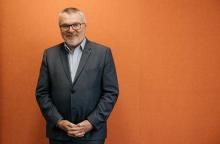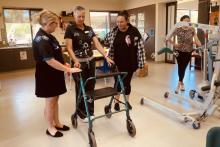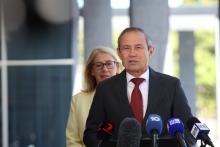One in seven people in Western Australia are living in poverty and October 12 to 18, 2025, has been dedicated to increasing awareness of this through Anti-Poverty Week.

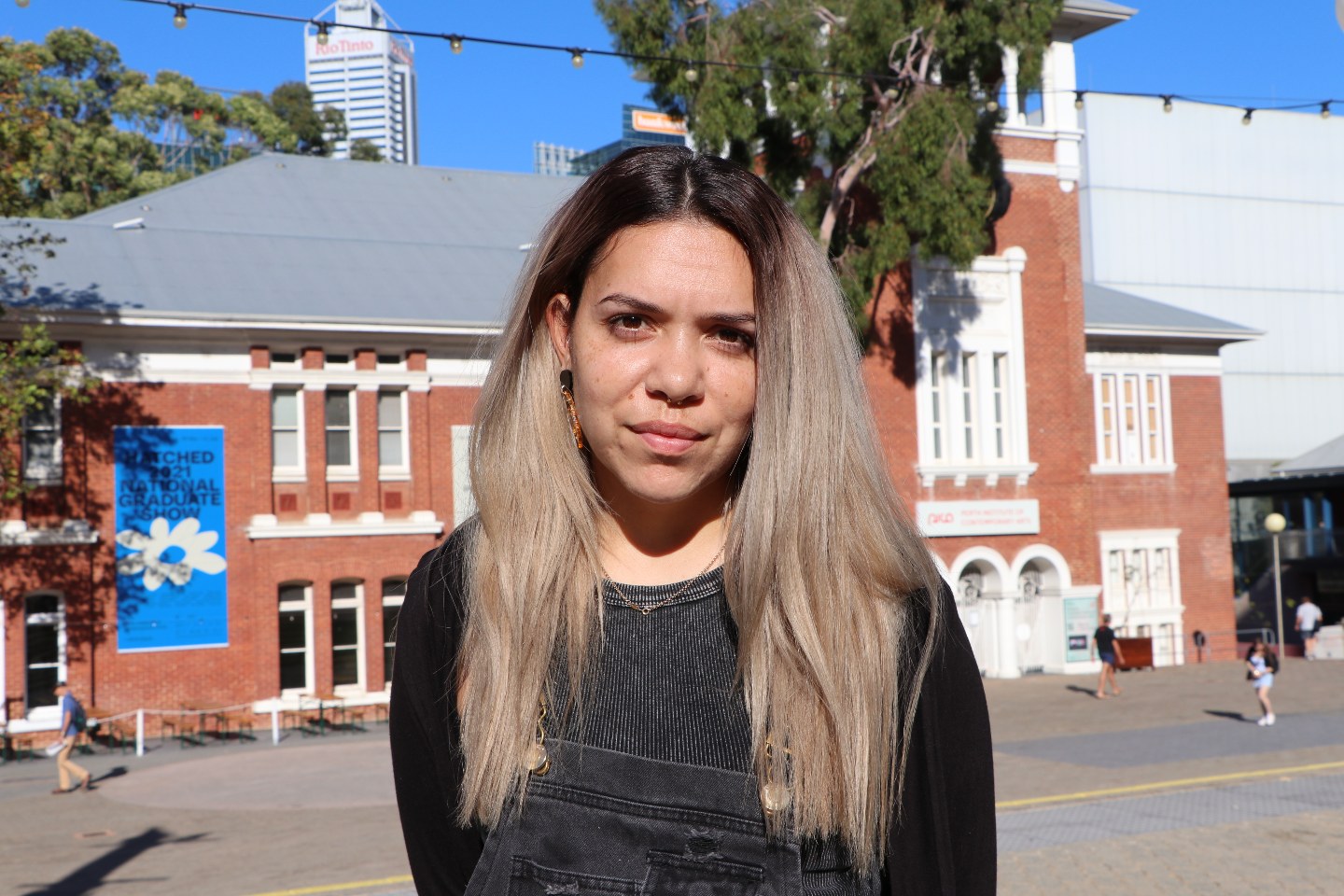
One in seven people in Western Australia are living in poverty and October 12 to 18, 2025, has been dedicated to increasing awareness of this through Anti-Poverty Week.
“Poverty is an everyone issue, whether it impacts you directly or indirectly, and we all have an ability to contribute to making change, including from a business point of view,” Anti-Poverty Week co-chair and No Place for Poverty lead Alex Hughes said.
Public initiatives are set to take place across Perth during the week to not only raise awareness of the significance of poverty, but to engage the community in contributing to change.
“The purpose of Anti-Poverty Week is to raise awareness, ignite compassion and spark action, big or small,” Mr Hughes said.
“You can measure the success of a place by how well it treats its most vulnerable. I’d like to live in a place that really looks after its people who are struggling.”
There are more than 419,800 people living in poverty in WA, a figure that could fill up Optus Stadium seven times with two of those virtual stadiums being children alone.
“Children living in poverty grow up and are three times more likely to stay in poverty,” Mr Hughes said.
“We have to break that cycle. Plus, there’s so much potential to be unlocked, and not just in children, but in the mums, for example, because 90 per cent of single parents are mothers and one in three single parents are living in poverty.”
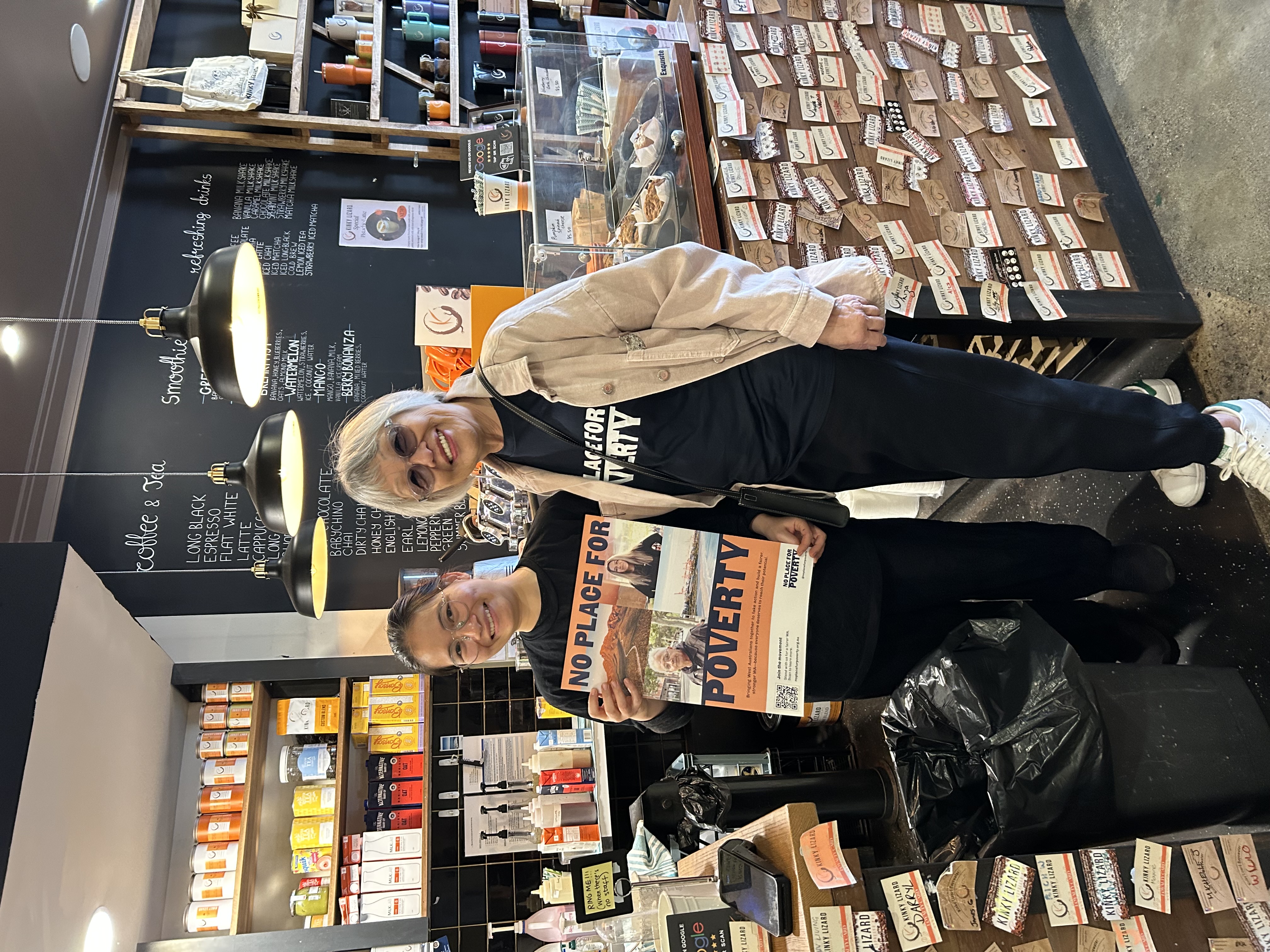
Kinky Lizard Bayswater is one of more than 30 businesses displaying No Place for Poverty poster and postcards.
Mr Hughes said there were ample opportunities for the business sector to step up to help reverse rising poverty levels.
“For me, poverty is not an ugly word, it’s an opportunity,” he said.
“If businesses or organisations are thinking about how they can make an impact … they can really create change by just slightly tweaking their business model.
“For example, in September, we had a cafe and coffee roasting business owner come to us and say he really wanted to help, but didn’t know how.
“We were able to sit down and talk about that, and now we’ve set up a connection with Anglicare WA’s Foyer Oxford, which is a youth accommodation for people experiencing homelessness.”
In addition to accommodation, No Place for Poverty is in the process of discussions that could see Foyer Oxford provide young people with opportunities for mentoring, career nights and employment pathways, which business leaders can contribute to.
“Your job title doesn’t matter,” Mr Hughes said.
“If you come at it with good intention and a willingness to help, then we can work something out. You can still come to the table and provide support.”
"We know over the last 10, 11 years, poverty has been rapidly increasing and we’ve gone from 8.5 per cent to 13.5 per cent in that period." Anti-Poverty Week co-chair Alex Hughes
This year’s Anti-Poverty Week program includes a variety of initiatives, from social media campaigns and 1.2-metre decals and posters at Perth public transport stations, to face-to-face engagements with the community and a roundtable for sector leaders and politicians.
The roundtable event will be held on October 10, bringing together 35 not-for-profit industry leaders, business leaders, well-known WA personalities and politicians to discuss poverty in WA.
“In short, it’s about discussing what’s holding us back and what’s going to move us forward,” Mr Hughes said.
“We know over the last 10, 11 years, poverty has been rapidly increasing and we’ve gone from 8.5 per cent to 13.9 per cent in that period.
“There are things we can do to have a massive impact on that – at a state level and a federal level – but we just don’t seem to be having any traction on that, so we want to bring together the leaders of this state, and one federal minister too, to discuss what’s holding us back and what can move us forward.
“The Governor is convening that event, so that’ll be at Government House.”
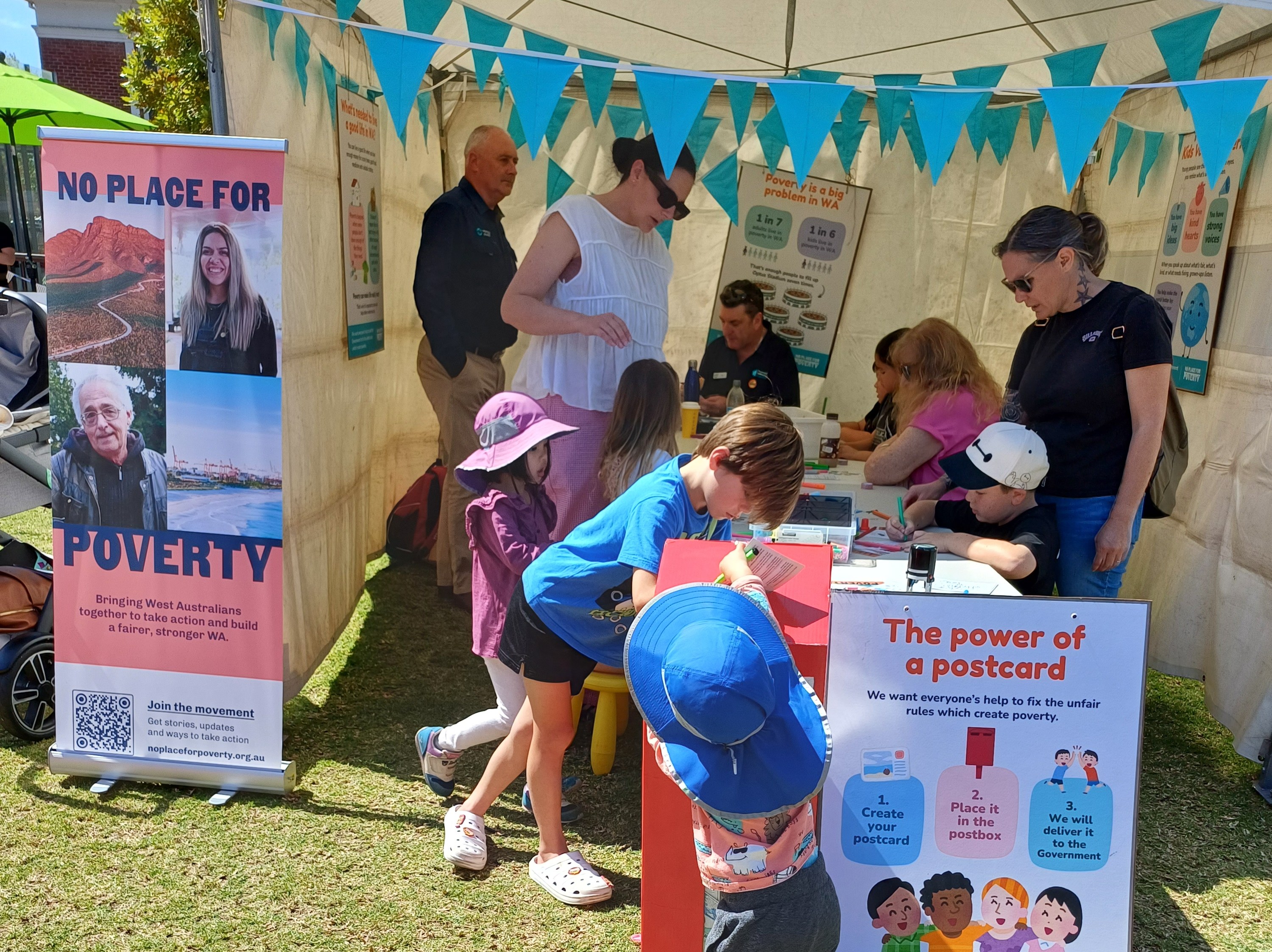
No Place for Poverty has a tent at AWESOME Festival 2025 to educate children and youth about poverty.
Anti-Poverty Week co-chair and Financial Wellbeing Collective general manager Helena Jakupovic said the purpose of the Anti-Poverty Week was to increase dialogue around poverty and encourage more people to think about solutions.
“One of the things that Alex has mentioned is targeting different groups, different demographics and really trying to get as many people to have awareness, so that it becomes something that’s talked about and destigmatised,” Ms Jakupovic said.
“Hopefully we can start to see real change happening, rather than just focusing a lot of activity in one week, which is what often happens with Anti-Poverty Week.
“It’s great, but we need to have more movement happening beyond this week and we can all play a part in that.”
To find out more about poverty in Western Australia, click here.
No definition for poverty
Australia doesn’t have an official definition of poverty and instead uses the Organisation for Economic Cooperation and Development’s (OECD) definition of the ‘poverty line’, which is defined as half the median household income of the total population.
The OECD is an international organisation that gathers data and statistics to establish evidence-based international standards, including for economic policy.
Australia has the 15th highest poverty rate of the 34 wealthiest countries in the OECD.
"There’s a major failing there where we’re neglecting a significant portion of our community." Anti-Poverty Week co-chair Helena Jakupovic
Mr Hughes said not having a definition for poverty in Australia meant the issue was not being adequately measured.
“In an affluent place like Australia, poverty requires advanced measurements, but because the Australian government doesn’t define poverty, we don’t measure it in the detail needed and, because of that, we don’t legislate,” he said.
“You can’t only measure poverty in financial terms because, for example, you might be a single mum earning above average salary, say $75,000, but you have two kids at home and you don’t get any child support for various reasons, so you’re actually in poverty because you need to stretch your 75k across two kids, across a high rental income.
“We don’t measure that kind of depth, so if you’re government, what levers do you need to pull to make change to that? Is it education? Is it employment pathways? Is it this? Is it that?
“You don’t know how your investment is going to pay off because we don’t measure in that kind of detail. You’re left with really blunt tools to try and address something that’s quite detailed.”
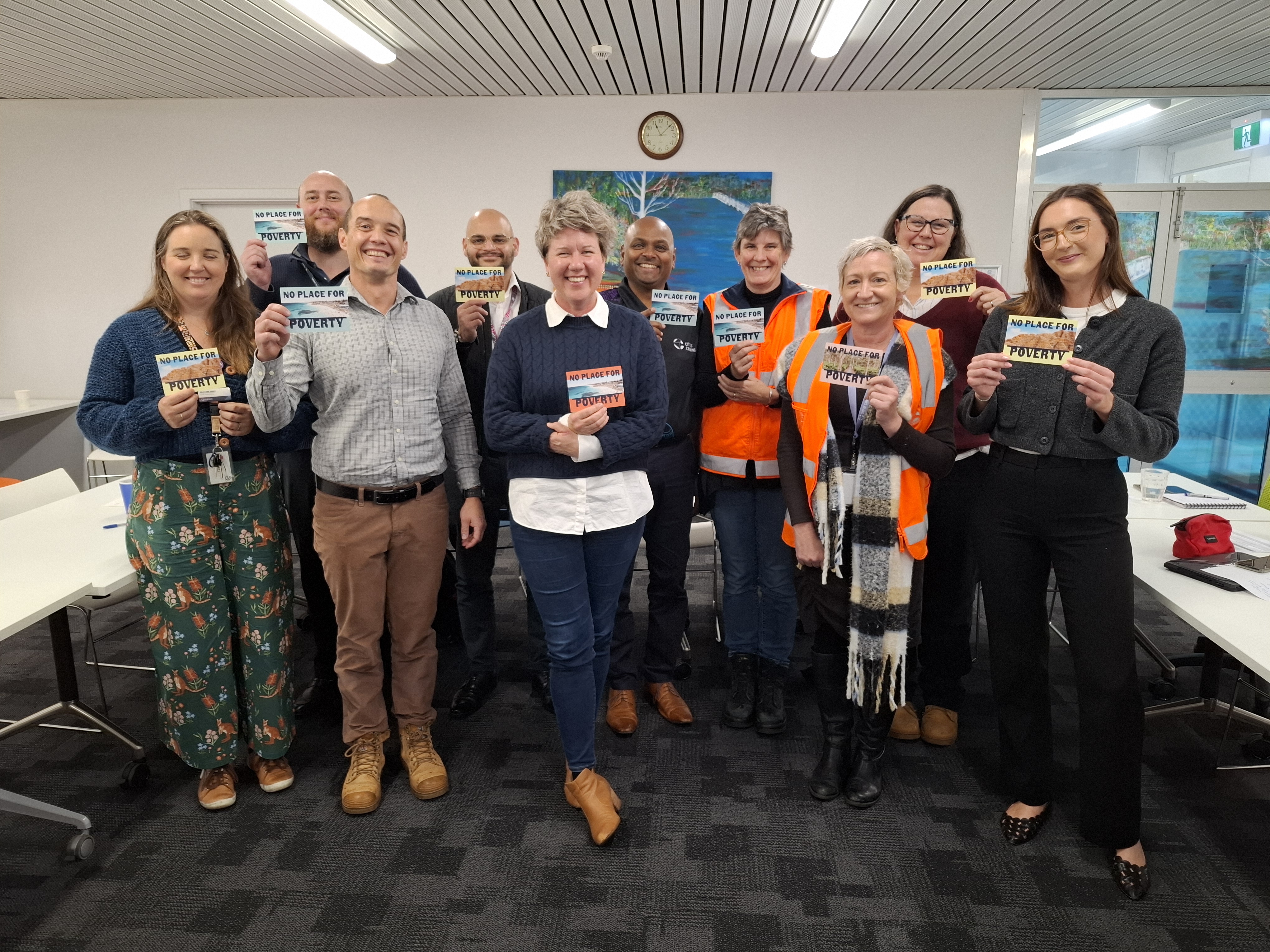
No Place for Poverty delivered its ‘Making a Difference, Made Easy’ workshop with City of Canning staff.
Ms Jakupovic described the lack of a definition for poverty in Australia as a “major failing”.
“It is almost like we’re turning a blind eye to it, it’s not an issue, it doesn’t exist, we don’t have to measure it – that’s scary stuff,” Ms Jakupovic said.
“Yet, when you think about what the government’s purpose is, yes, it’s to govern, but it’s also to look after its citizens.
“There’s a major failing there where we’re neglecting a significant portion of our community.”
To hear from people with lived experience, click here.
High poverty rates in one of the world’s richest places
For all of WA’s wealth, poverty continues to spread to more of the community and the cost of living continues to rise, pushing more people into financial hardship.
Ms Jakupovic said the FWC looked at three metrics to measure financial wellbeing: financial stress, food stress and utility stress.
“We’ve just updated our snapshot for 2024-25 and across that period we supported 5,703 people with financial counselling who had presenting debt of over $572 million,” she said.
“In terms of food stress, we supported over 13,280 people who were looking for help with food and in terms of utility stress, we supported 13,023 people who had a total utility debt value of over $26 million.
“Something is not quite right, something is missing.
“Since 2021, there’s been a 147 per cent increase in employed clients who are seeking emergency relief.”
Historically, people seeking aid would be those with low income, no income, or on government benefits, but now more employed individuals are struggling.
“Whilst we tend to go, ‘oh, there’s a new cohort’, what’s more alarming is that those people who were always impacted are becoming deeper and deeper entrenched in poverty,” Ms Jakupovic said
“We need to address that otherwise this situation is going to get worse and then there’s a flow-on to physical health, the health system, the justice system, the education system.
“What happens is that instead of investing money at the at the very beginning of the chain, with jobseeker and all of those government entitlements, we’re investing money in those different areas and it’s three to four times as much as what we could have been investing at the start.”
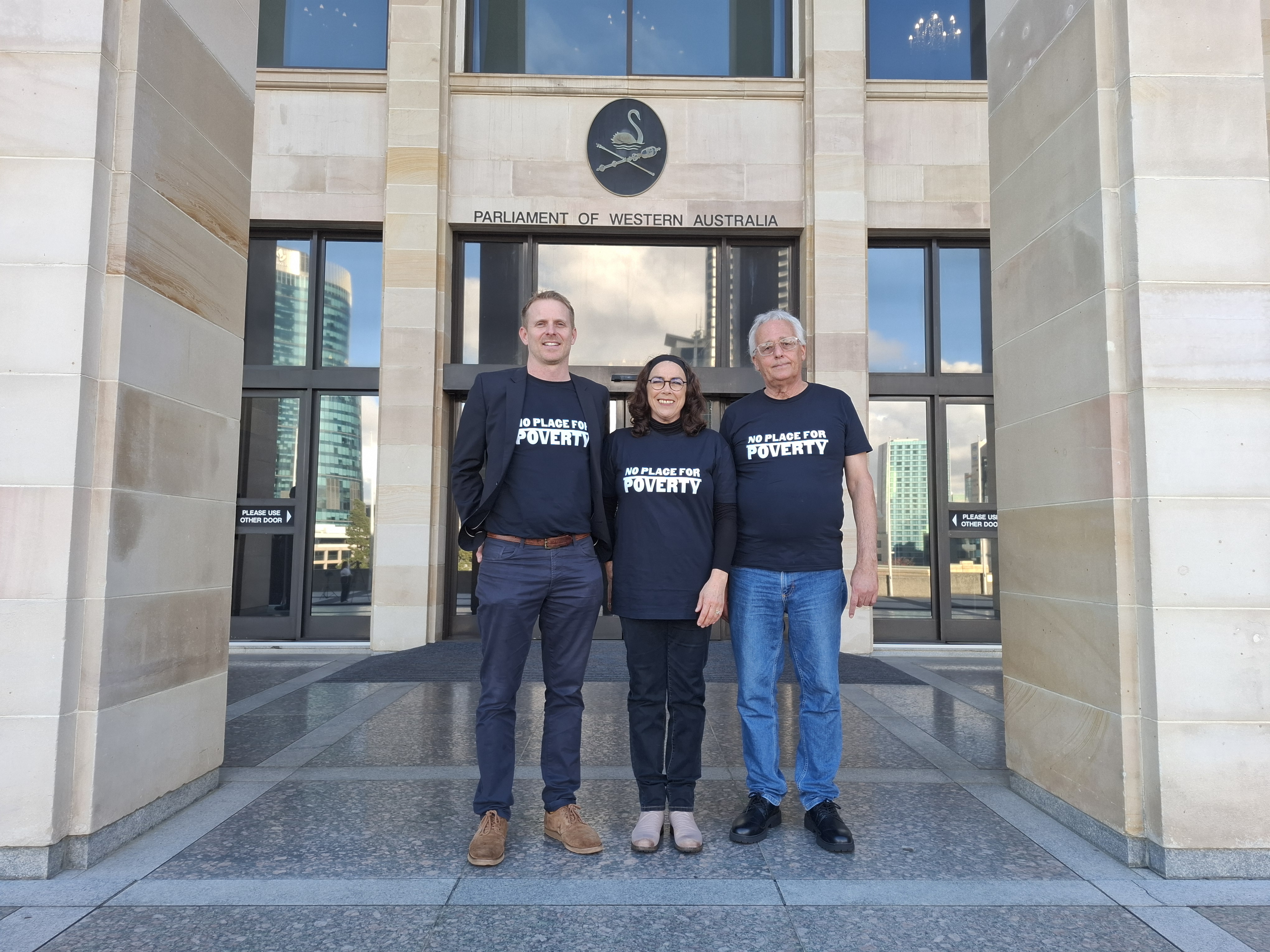
Alex Hughes (left), Alison Bellahart and Len James at Parliament House on the 2025-26 WA Budget release day to share their thoughts as people with lived experience.
Ms Jakupovic said the vast majority of financial support from the government was provided in the crisis stage.
“The problem with providing support in the crisis phase is that it’s very transactional and acts like a band aid,” she explained.
“I put a band aid on, I send you away, you come back again. We need to shift to more of a prevention focus and addressing poverty is a big part of that.”
Mr Hughes agreed, adding that the root causes of poverty should be addressed as a priority whilst still supporting the cascading side effects caused by poverty.
“For example, you’re not going to end poverty by creating more food banks,” Mr Hughes said.
“You are going to help people eat and obviously that’s an important part, but just cycling through the system of symptoms and not ending poverty through root cause initiatives is silly."
"That’s the WA I want to try and build; a WA that we all get to benefit from, not just those who can afford it." Alex Hughes
“We have underutilised human capital, people who want to work but are unable because they’re stuck in this poverty trap,” Mr Hughes said.
“They can’t afford day care, they can’t afford to get to the interview, they’re too busy chasing their tail to put food on the table to even consider getting a job.
“Even things like internet access – there are so many barriers preventing people, so they then need to access more services to sustain themselves, which is a cost to the state.”
One of the interviews being released as part of Anti-Poverty Week was with a mortgage broker who volunteers two hours per week to provide financial and budgeting assistance at Foyer Oxford.
“He said making money and being successful in business is okay, but this was something that actually fulfilled him,” Mr Hughes said.
“There’s more to life than money and when we come to the government and talk about making a strong economy, to what end? What’s the purpose if it’s not to serve everybody?
“That’s the WA I want to try and build; a WA that we all get to benefit from, not just those who can afford it.
“How many surpluses have we boasted? I think it’s seven or eight now of multi-billion-dollar surpluses, whilst we have an epidemic of older women going onto the streets. That’s not something to be proud of.
“I feel like we need to start really adjusting our priorities and working out what matters.”




